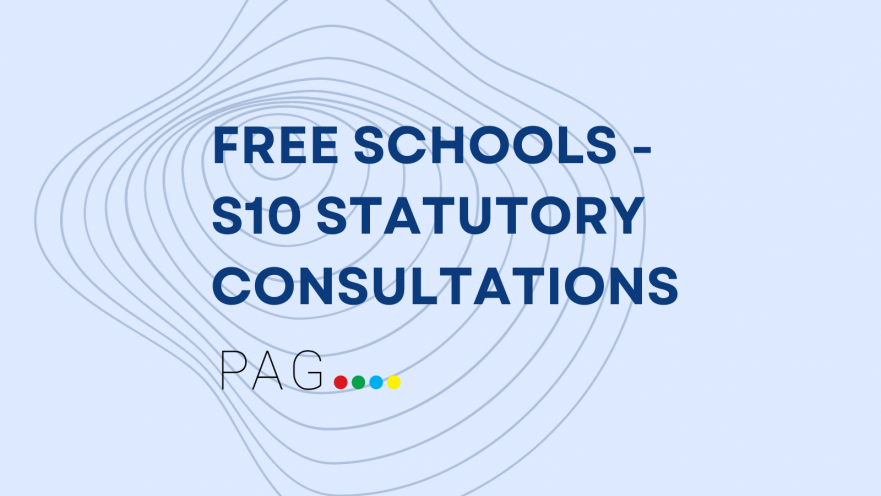Free Schools - S10 Statutory Consultations
The statutory consultation process under Section 10 (S10) of a free school bid plays a crucial role in shaping the future of these educational institutions. In this blog post, we will delve into the significance of S10 statutory consultations, exploring their purpose, key elements, and the broader implications for stakeholders.
Understanding Free Schools and S10 Consultations:
Free schools, introduced in 2010, are publicly funded schools that operate independently of local authorities. One of the key features of establishing a free school is the requirement for statutory consultations under Section 10 of the Academies Act 2010. This process ensures that the local community, parents, and other stakeholders have a voice in shaping the character and ethos of the proposed school.
Purpose of S10 Consultations:
The primary goal of S10 consultations is to gather feedback from the community and stakeholders on the proposal to establish a new free school. This inclusive approach aligns with the government's commitment to involving local communities in educational decision-making. By seeking input from various stakeholders, S10 consultations aim to ensure that the proposed free school meets the needs and preferences of the local community.
Key Elements of S10 Consultations:
Transparent Communication:
• Transparency is a cornerstone of the S10 consultation process. The proposers of the free school are required to communicate their plans clearly, providing detailed information about the school's vision, curriculum, admissions criteria, and any potential impact on existing schools in the area.
Engagement with Stakeholders:
• Meaningful engagement with the community is vital during S10 consultations. This involves organizing public meetings, distributing information through various channels, and actively seeking feedback from parents, teachers, local authorities, and other relevant parties. By involving stakeholders, the process ensures a diverse range of perspectives are considered.
Consideration of Feedback:
• The feedback received during S10 consultations is not merely a formality but holds significant weight in the decision-making process. Proposers are expected to carefully consider the comments and concerns raised by the community, making any necessary adjustments to the proposal based on the feedback received.
Submission to the Department for Education:
• Following the consultation period, the proposers compile a report summarizing the feedback received and outlining any changes made to the proposal as a result. This report, along with the original proposal, is then submitted to the Department for Education for review.
Broader Implications:
The S10 consultation process goes beyond fulfilling a legal requirement; it embodies the principles of democratic decision-making and community involvement in shaping the educational landscape. By actively engaging with stakeholders, free schools can build stronger connections with the local community, fostering a sense of ownership and collaboration.
PAG has significant experience of both free school proposals and opening new free schools and can work with you and your team to realise your ambitions. To speak to us about how we can help, please use the Contact page above.
